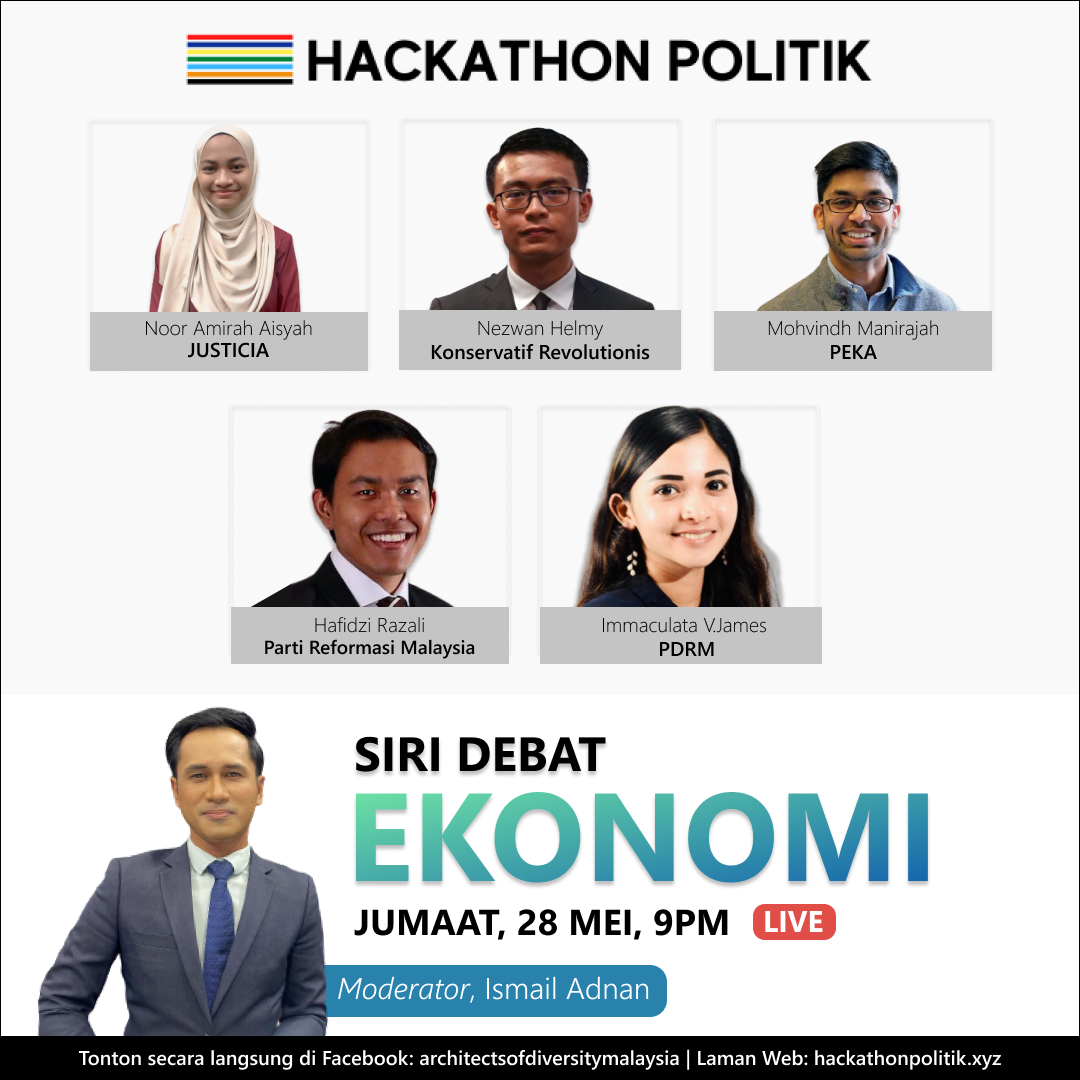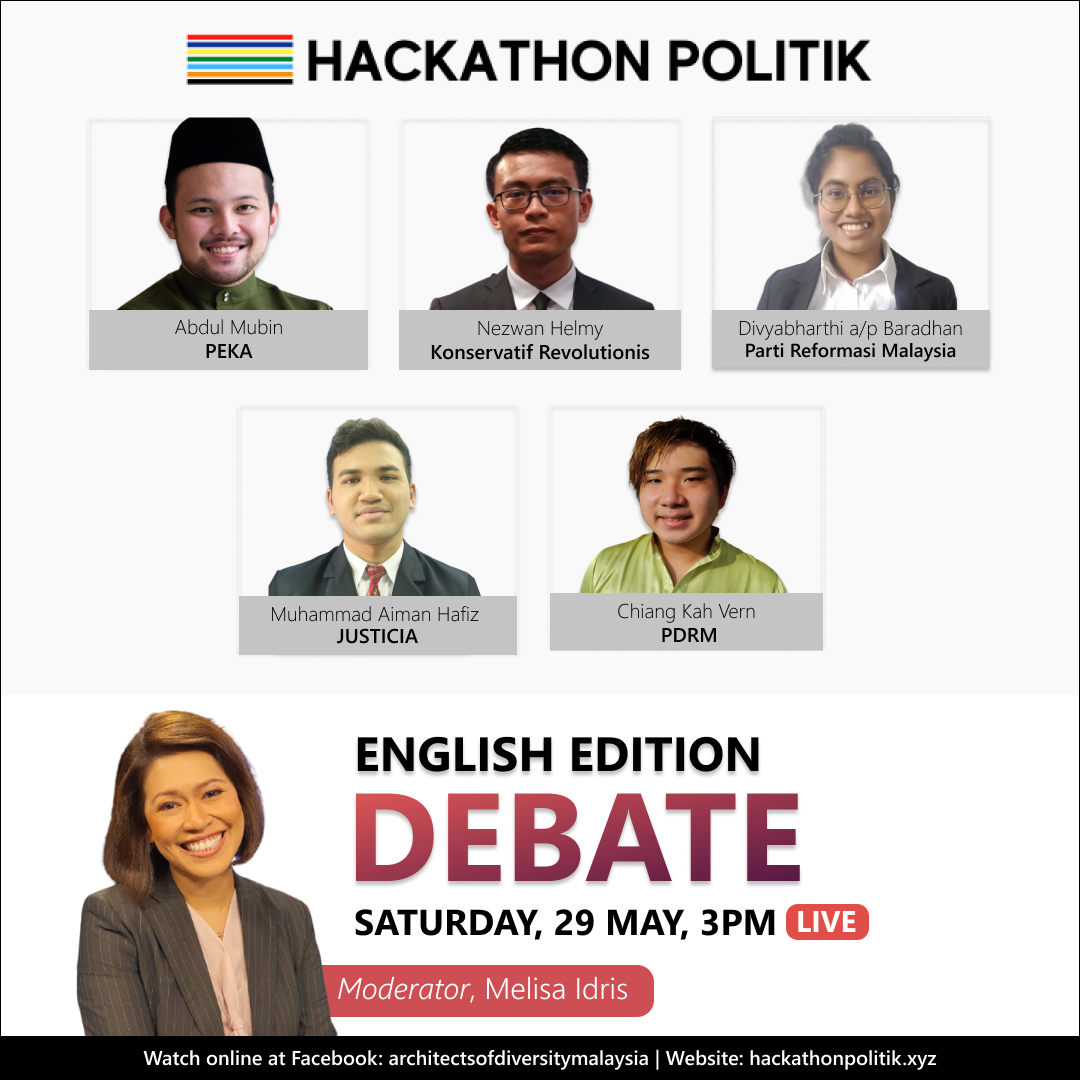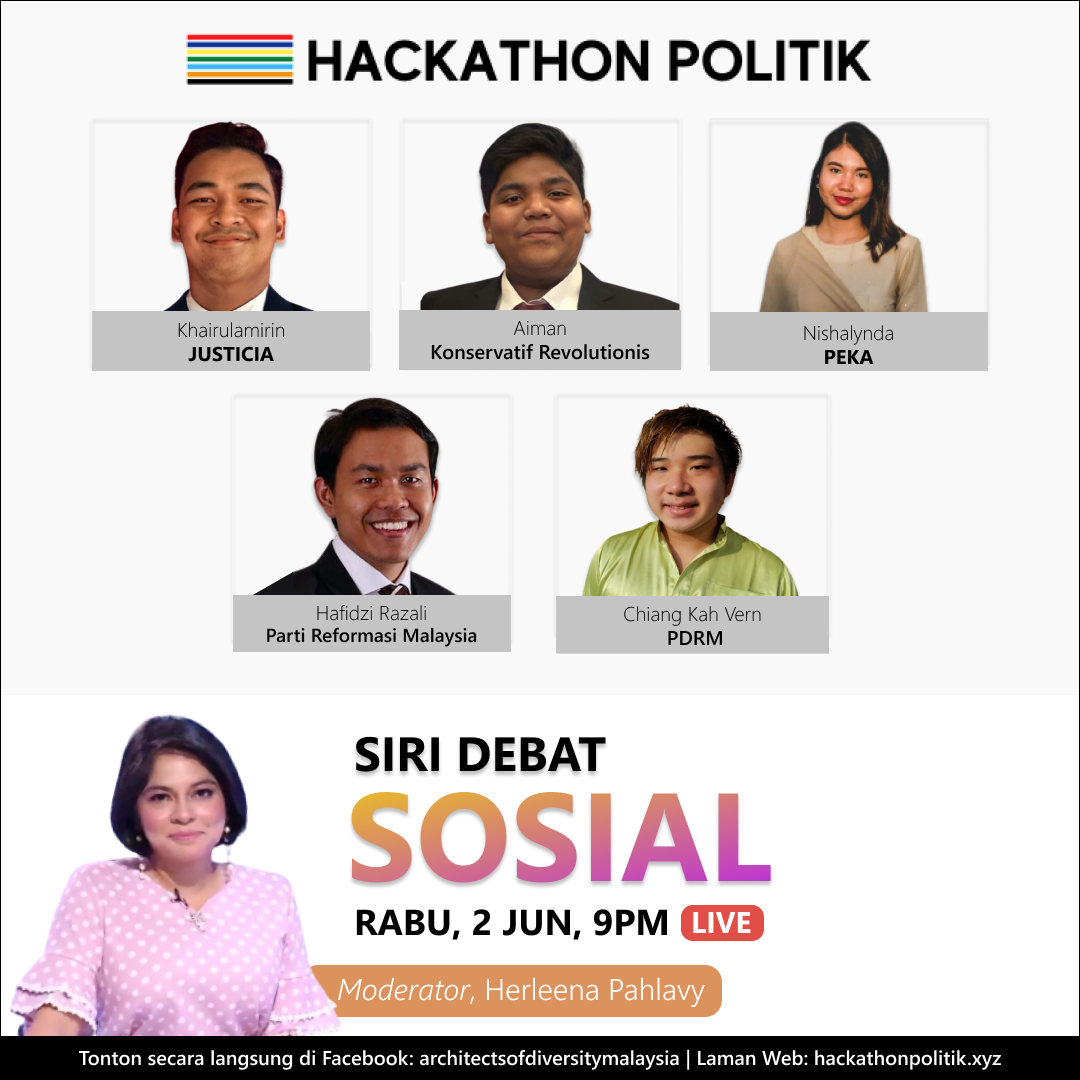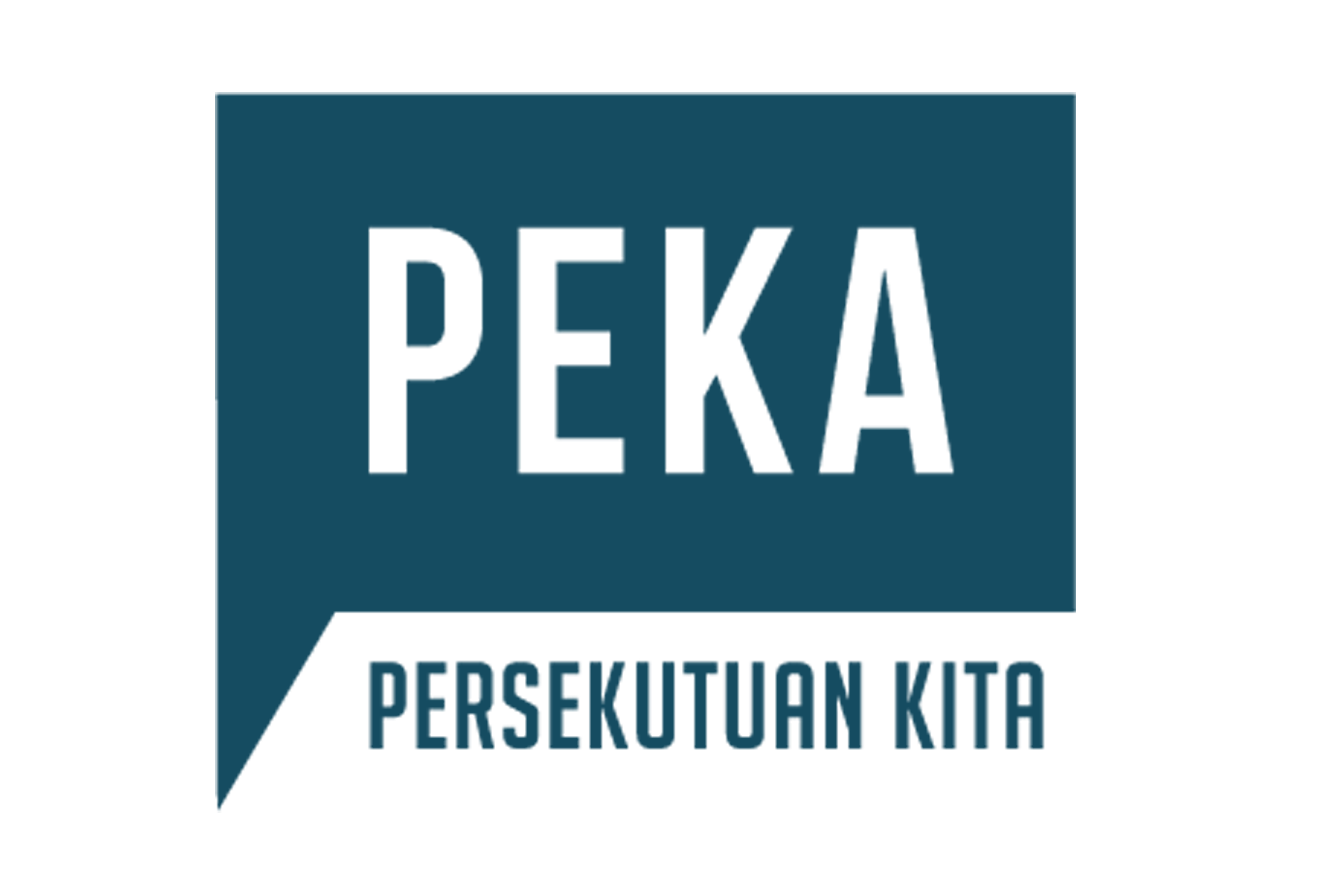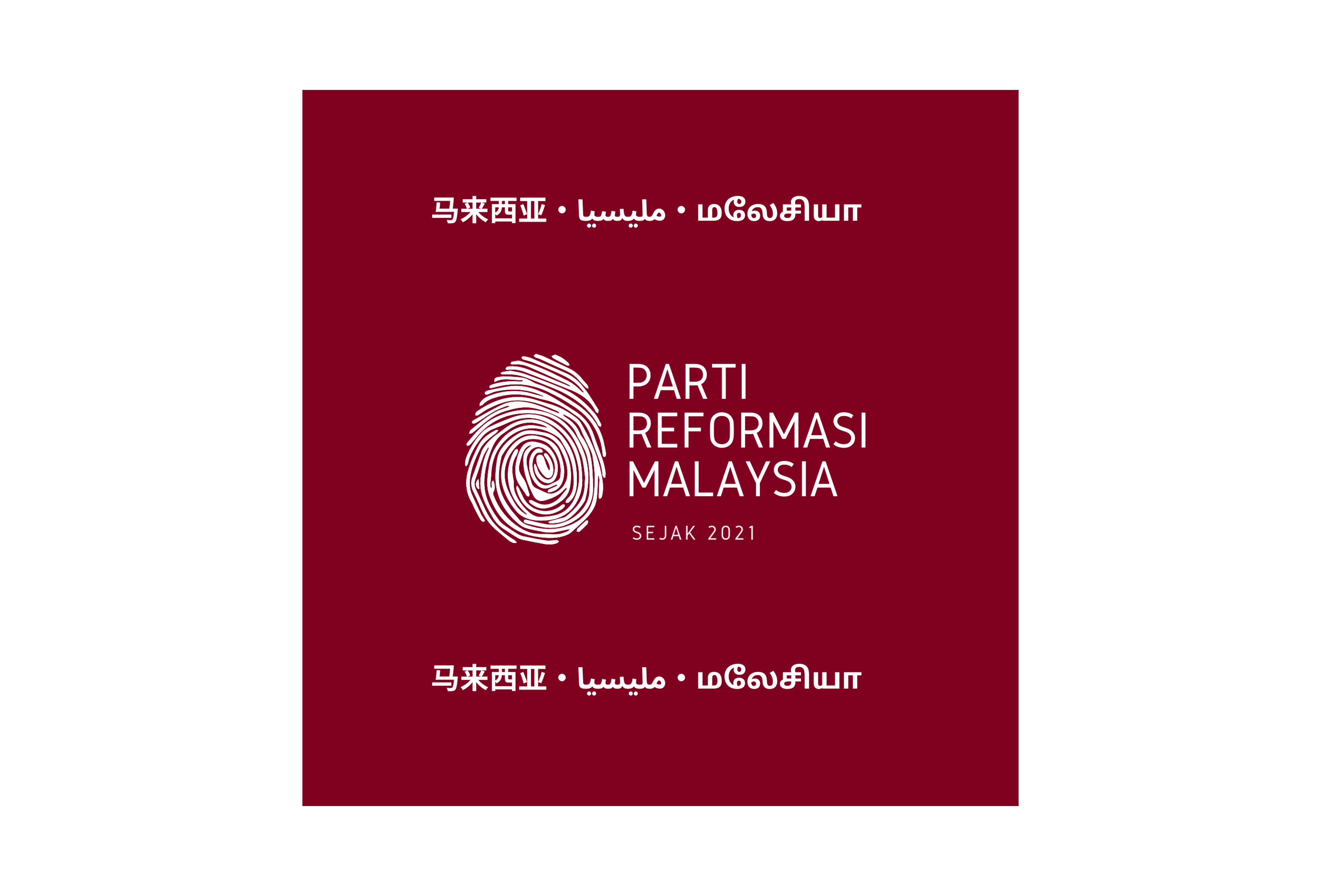M'sian Youths Set Up 5 Mock Political Parties To Compete In A Simulated General Election
The virtual competition aims to challenge youths to create new and inclusive political approaches while having to consider the various constraints of the local electoral landscape.
A first-of-its-kind youth competition is being organised by local groups to inspire a reimagination of political parties for all Malaysians
It's called Hackathon Politik and is being organised by Architects of Diversity (AOD), a non-governmental organisation (NGO) that aims to bridge different communities among youths in the country.
According to AOD, the Hackathon aims to challenge youths to create new and inclusive political approaches while having to consider the various constraints of the local electoral landscape.
The competition will see five mock political parties compete in a simulated general election (SGE) with over 700 virtual voters from 28 May to 12 June 2020.
"Unconstrained by incumbency advantages, these parties are imagining a better political landscape for Malaysia by innovating how political parties could look like for our nation," AOD said in a statement.
Undi18, Perdana Fellows Alumni Association (PFAA), and Malaysian Students' Global Alliance (MSGA) is supporting Architects of Diversity in organising the Hackathon Politik.
The five final mock political parties that have been selected have presented their party manifestos and policies to political leaders
Among the politicians who were presented with the manifestos and policies by the five parties include YB Yeo Bee Yin, YB Lukanisman bin Awang Sauni, and YB Fahmi Fadzil.
According to AOD, the average age of finalists is 22 years old.
These finalists will now compete for the vote of a representative sample of Malaysians, with the winning team successfully garnering the most support from 33 constituencies.
Voters in 30 of 33 of these constituencies will be recruited through a survey company to reflect the landscape of Malaysian voters, while interested members of the public can sign up as voters.
Explaining the process, the NGO said that public voters will be randomly divided into three constituencies and will submit their vote online on 12 June.
The mock political parties are:
- Parti JUSTICIA,
- Parti Konservatif-Revolusionis,
- Parti Demokratik Rakyat Malaysia (PDRM),
- Parti Reformasi Malaysia (PRM), and
- PEKA.
Representatives from these parties will be participating in livestreamed presidential-style debates on 28 May, 29 May, and 2 June on party policies and priorities.
The debates will be moderated by Ismail Adnan, Melisa Idris, and Herleena Pahlavy.
A brief background into the five mock political parties
- Parti Demokratik Rakyat Malaysia (PDRM)
It is founded on three pillars: the principles of democracy, the will of the people, and the development of Malaysia. PDRM will safeguard the democratic rights of all Malaysian citizens regardless of race, gender, age, religion, socioeconomic background and sexuality. PDRM will fight social inequality through progressive taxation, expansion of welfare programs, policy and institutional reform.
PDRM will uphold the principles of the Malaysia Agreement 1963, fight for greater autonomy in Sabah and Sarawak, as well as decentralising power from the executive and federal government.
PDRM will shape a Greener Malaysia by aiming for net-zero carbon emissions by 2055 to combat climate change through a targeted carbon tax and increasing public transport coverage. PDRM will reform the currently fractured education system by implementing the Sekolah Wawasan concept nationwide that will foster national unity. PDRM will work with the people to build a more democratic, sustainable and economically strong Malaysia that all Malaysians can be proud to call Negaraku.
- Parti Konservatif-Revolusionis
It's a political party founded on a combination of New Conservative, Libertarian, and Liberal-Conservative ideologies. They are the first of their kind to combine the ideologies of conservatism and liberalism as a singular foundation for their party.
The party is committed to champion ‘The Silent Majority’ and 'Universal Education' as means of lessening the socioeconomic gap within the population.
Konservatif-Revolusionis aims to fortify a small and limited government, develop the economy through lowering tax and increasing wage, as well as prospering national development through enhanced, green, and reversed urbanisation.
The party hopes to create a stable, economically strong, and immigrant-friendly Malaysia, while defending the traditional values that shape the image of Malaysia such as Constitutional Monarchy, Parliamentary Democracy, Rukun Negara, and the National Language.
- Parti JUSTICIA
It was founded on the principles of "Holistic Justice", which guarantees justice regardless of race, ethnicity, gender, and class. The party hopes to embody that principle in their fight for political alleviation, education access, healthcare, and economic opportunities.
The party is founded on three major pillars: defending the will of the people and vulnerable minorities, amplifying the voices of the youth, and overcoming current nationwide struggles.
Socially, the party intends to boost the position of women within the country. Politically, the party aims to lower the voting age to 18 years old and implement legislative changes for better youth representation. In education, JUSTICIA intends to further improve the current teacher-training programme and exam-based learning.
Parti JUSTICIA hopes to serve Malaysia for the better by elevating women within society and investing in our youth through education policies and political engagement.
- PEKA
It is a party that believes in the empowerment of every Malaysian that can be done by the decentralisation of power to local governments in order for them to better listen and respond to the unique issues in the various communities across the country, from Selangor to Sabah, from Kangar to Kuching.
PEKA believes in change from the ground up. PEKA places heavy emphasis on education reform by creating a holistic education system, one without streams, and uplifting infrastructure of schools in B40 & rural communities to bridge the gap to more affluent schools.
Furthermore, PEKA understands the need for stronger human rights, media freedom and states' rights, particularly Sabah and Sarawak to empower Malaysians for the future.
- Parti Reformasi Malaysia
PRM is a party that represents all levels of society in Malaysia. PRM’s fingerprint logo symbolises universal equality and targeted policies to solve the issues concerning the Rakyat.
PRM's main focus is to bring a long-term agenda to restructure the Malaysian social and economic scene towards a national development that is in line with developed countries. Therefore, the backbone of PRM's policy aims to be comprehensive and covers 9 main pillars, namely: economic, fiscal, governance, socio-economy, community protection, education, infrastructure, environment and defence.
The core approach of PRM is need-based affirmative action that is equitable; whether it be for Peninsula, Sabah or Sarawak.
